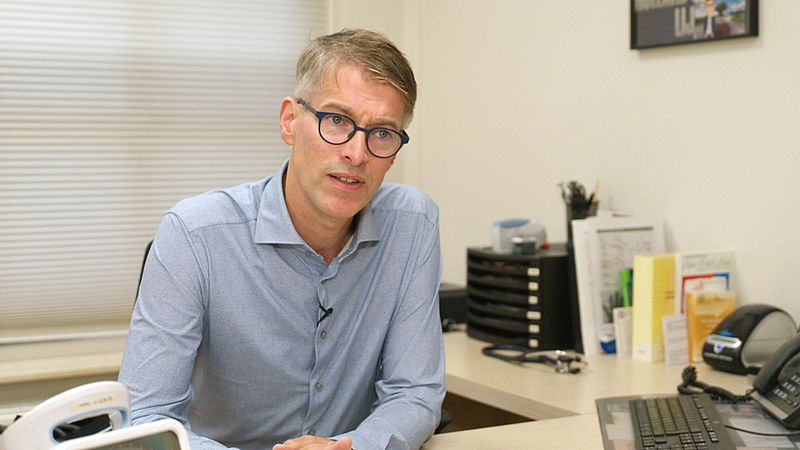It has been going on for decades: pointless rules and administrative burdens for general practitioners. These must decrease, but new figures show that the opposite is happening. “GPs now spend an average of one day every week on paperwork.”
The government has been wanting to reduce the regulatory burden on general practitioners for years, but has completely failed to do so. This is evident from a survey by the National Association of General Practitioners (LHV), to which more than 2,000 general practitioners responded.
Administration one day a week
The poll shows that four in five GPs now spend more time on administration than 5 years ago. A large majority of general practitioners spend more than one day a week on administrative obligations.
As many as 85 percent of general practitioners surveyed say they spend too much time on tasks that are not related to direct patient care. Despite all attempts by the government to limit the regulatory burden.
‘Everyone hates it’
A very worrying development, according to the LHV. “There is already so much pressure on general practitioners. And then we see from the survey how much time they spend on paperwork,” says board member Guus Jaspar.
“Everyone hates it, and it is often completely unclear whether it helps and whether it is useful. General practitioners want to help people, and not fill in forms because others want something.”
also look at
GPs are angry: there may be no structural money for ‘more time for the patient’
Half of practice owners sometimes consider quitting
Almost half of practicing general practitioners sometimes consider quitting due to the large amount of administrative burdens, the survey also shows.
In addition, 80 percent of locum GPs indicate that regulatory pressure influences their choice of whether or not to start their own practice. It is a striking development, at a time when the role of general practitioner care is seen as crucial to keep the healthcare system afloat.
‘If that law is also added, I will stop’
Arno Krijgsman is a general practitioner near Nijmegen. He recognizes the sentiment from the survey: “Now, for example, something new is in the making. A law that will force larger general practices, such as ours, to set up a Supervisory Board and submit annual accounts. That still means more rules, even more control.”
“When I realized what this law requires, I thought: if it comes into effect, I will stop. And I thought for the first time: I can no longer recommend people to become general practitioners. It can no longer be explained.”
‘Good quality work’
In a response to the LHV survey, the Ministry of Health, Sport and Welfare says that attempts are being made to ‘reduce the regulatory burden, but that legislation and information provided by doctors are needed to know whether good quality work is being done’. The LHV reacts in bewilderment. “This is incomprehensible,” says board member Guus Jaspar.
“We have been busy passing on all kinds of information for years. And now there is a threat of new laws being added, with a lot of administration once again ending up with doctors. I think it is a shame that such a response is being given. This appears to be from someone who doesn’t know what this is about. This doesn’t help us.”
‘It’s almost insulting’
What is the reason for all the laws and regulations that GPs must adhere to? General practitioner Arno Krijgsman has a suspicion: “There is an atmosphere of distrust, that’s how I experience it. Every detail has to be checked. It’s almost insulting, I really don’t understand it.”
Krijgsman gives a concrete example: “Suppose I write a new prescription for a patient. He then goes to the pharmacy and picks up the medicine. That’s it, one would think.”
also look at
Aggression against general practitioners is becoming increasingly intense, sometimes even requiring permanent surveillance
Do not distrust in advance
“But no, the pharmacy then sends me an extensive form in which I have to justify why I prescribed this medicine. Totally useless extra work for them, but especially for me.”
The ministry must let general practitioners do their work and not distrust everyone in advance, Krijgsman says. “Let a practice where there are signs that things are going wrong, take responsibility, instead of everyone.”
Ministry promises improvement
The ministry promises improvement: “We see that the impact (to disrupt healthcare, ed.) on a large scale has so far been insufficient. That is why, with the help of follow-up advice from the Council of State, we will work together with the parties of the Integrated Care Agreement, such as the LHV, are looking for more radical measures that have more impact in the daily practice of healthcare providers.”
Guus Jaspar of the LHV has simple advice for the ministry: “Let people in healthcare indicate what is needed and listen to it. If you work from trust, at least three quarters of all rules can be removed. It’s just nonsense.”
also look at
Major concerns about the functioning of the owner of the Co-Med GP chain: ‘He is unreliable in his appointments’
To ask? Ask them!
Do you have any questions or would you like to respond? Send us a message here in our chat.
2023-09-16 14:00:01
#Regulatory #frenzy #remains #disaster #GPs #day #spent #week #paperwork


